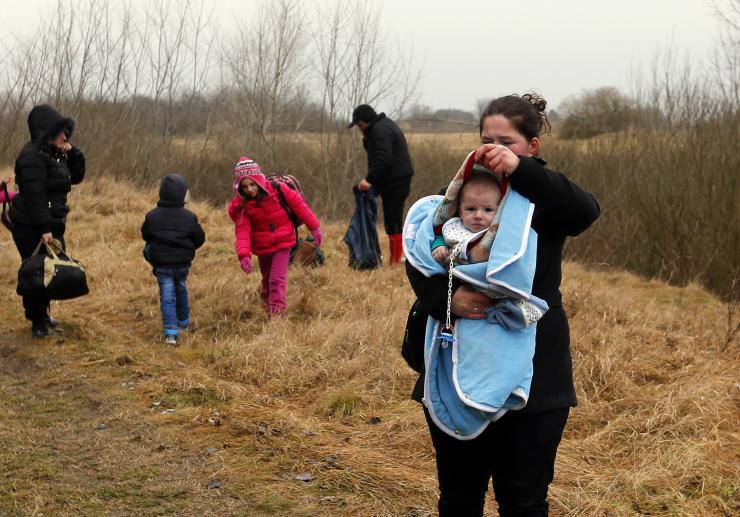The crisis going on in Syria is based on a civil war that has displaced approximately 11 million Syrians. The civil war has been going on since March 2011.
The civil war started with anti-government demonstrations.
Many people in Europe refuse to take in these refugees for fear of the unknown and economic purposes. The United States should follow suit.
The United States is already over $18 trillion in debt. With the added costs that the refugees bring, the debt will be unfathomable.
The current cap for Syrian immigrants by 2017 is 100,000 refugees. This number already is a burden that the United States is not equipped to handle.
Not everybody understands what the definition of a refugee is and what it entails for the host country. A refugee, who is a person escaping their home country due to war or other hardships, doesn’t just come needing shelter. Refugees need food, education and jobs.
How can we give them these jobs when we can’t even provide enough jobs for the people already living here?
As of 2014 there were 11.3 million unauthorized immigrants in the United States. This is already too much to handle without the addition of Syrian refugees.
For example, Donald Trump doesn’t want unauthorized immigrants for multiple reasons. One of those reasons being tax breaks.
The current cap for Syrian immigrants by 2017 is 100,000 refugees. This number already is a burden that the United States is not equipped to handle.
Unauthorized immigrants are paid under the table and don’t have to pay taxes on that income. The same may happen with the increase in Syrian refugees.
Unauthorized immigrants are paid under the table and don’t have to pay taxes on that income. The same may happen with the increase in Syrian refugees.
Are we just supposed to accept refugees from anywhere because we have government assistance and jobs that Americans don’t even have access to? Yes, we may have the geographic capacity to handle these refugees, but at what extent?
How much can we help them with limited supplies when we can’t supply that same service to homeless Americans or unauthorized immigrants crossing the border?
If money doesn’t seem to be the problem, we can help them where they are, in their homeland.
If we want to provide funds for anything, we should help them rebuild the lives and homes they left behind.
Instead of providing limited resources here, we should help start somewhere new. We are just a checkpoint in escaping Syria, not a permanent home.






